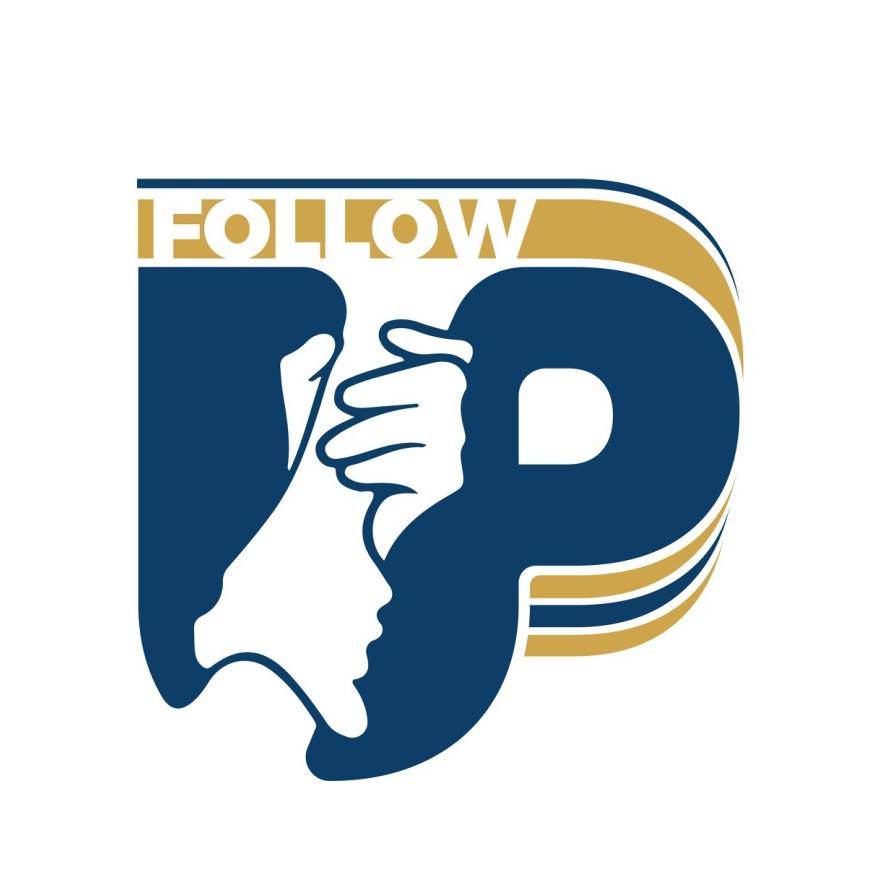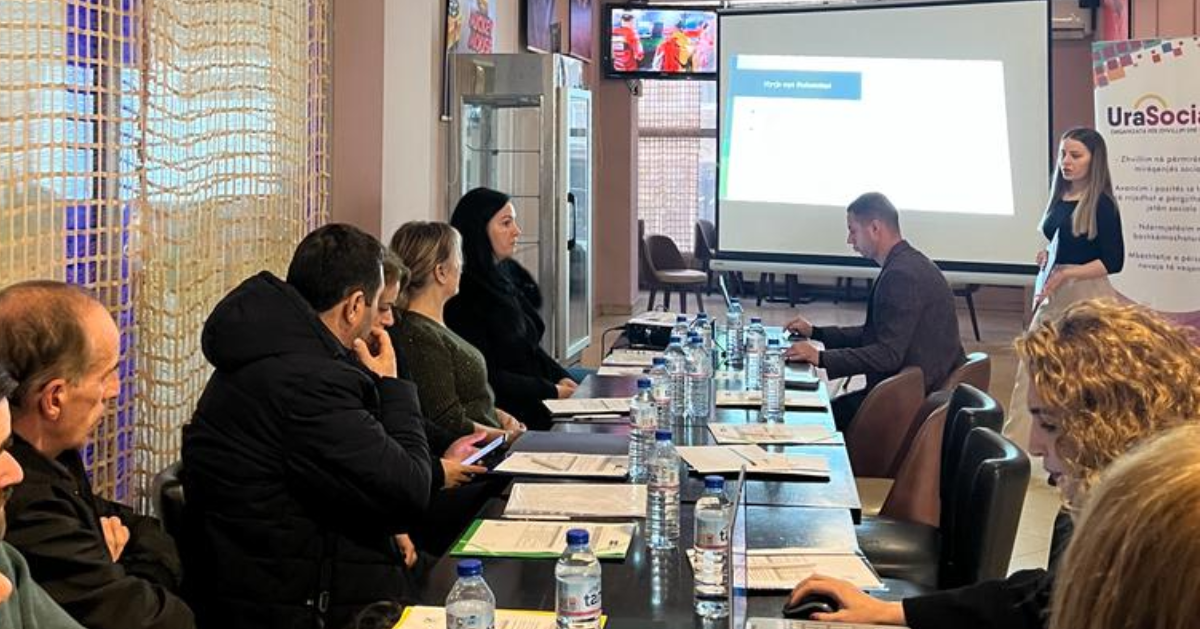On December 5, the Kosovo Women’s Network (KWN) released the Assessment Report for Kosovo: Gender Mainstreaming of the European Union (EU) Accession.
Considering that the Government of Kosovo and the EU have made several commitments to advance gender equality as part of the EU membership process, and relying on official policy indicators and a common methodology throughout the Western Balkan region (WB), this report monitors and reports on the progress made in advancing gender equality within key processes related to EU membership and political dialogue in 2022. The summarized findings and recommendations aim to offer government officials and EU representatives reflections on improving the inclusion of the gender perspective within these processes.
The summarized findings and recommendations aim to provide government and EU officials with reflections on enhancing the inclusion of a gender perspective within these processes.
The same aims to inform women’s civil society organizations (WCSOs) for a more gender-transformative approach in their advocacy initiatives regarding the EU membership process.
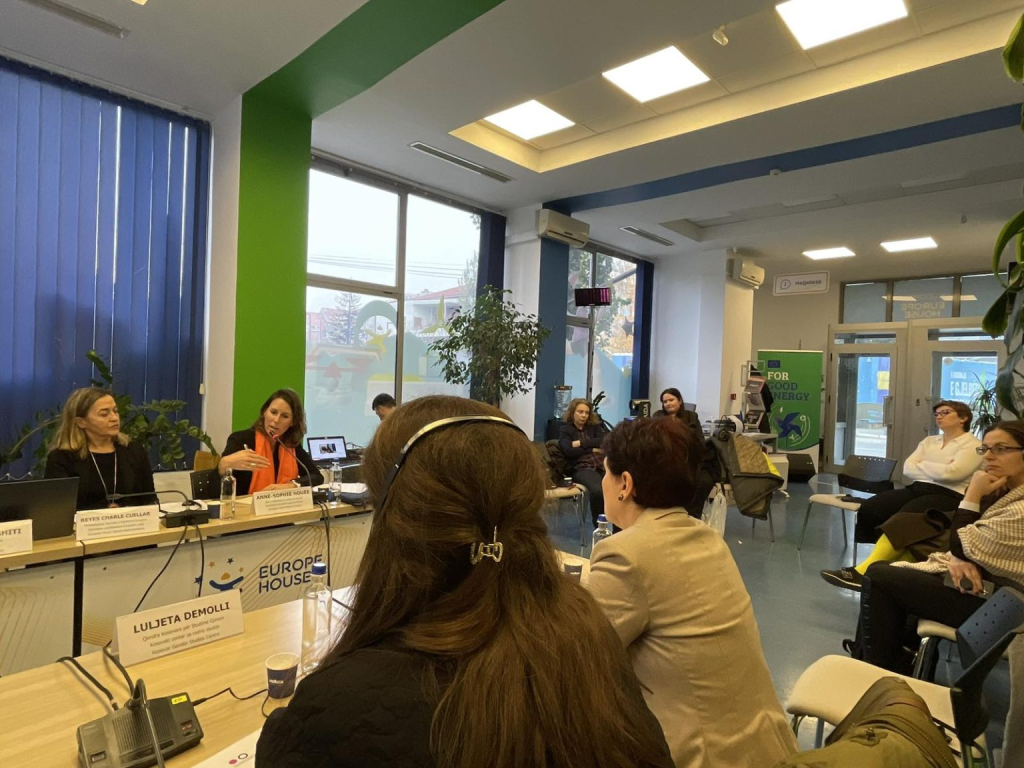
Overall, the KWN report found that the Government of Kosovo and the EU have significantly improved the degree to which they have included gender in the EU Membership process, showing an increase of about 31% compared to 2021. In relation to some of the measuring indicators, when compared to other WP countries, Kosovo has the most inclusive approach of civil society in the EU membership process. However, there are still opportunities for further improvements.
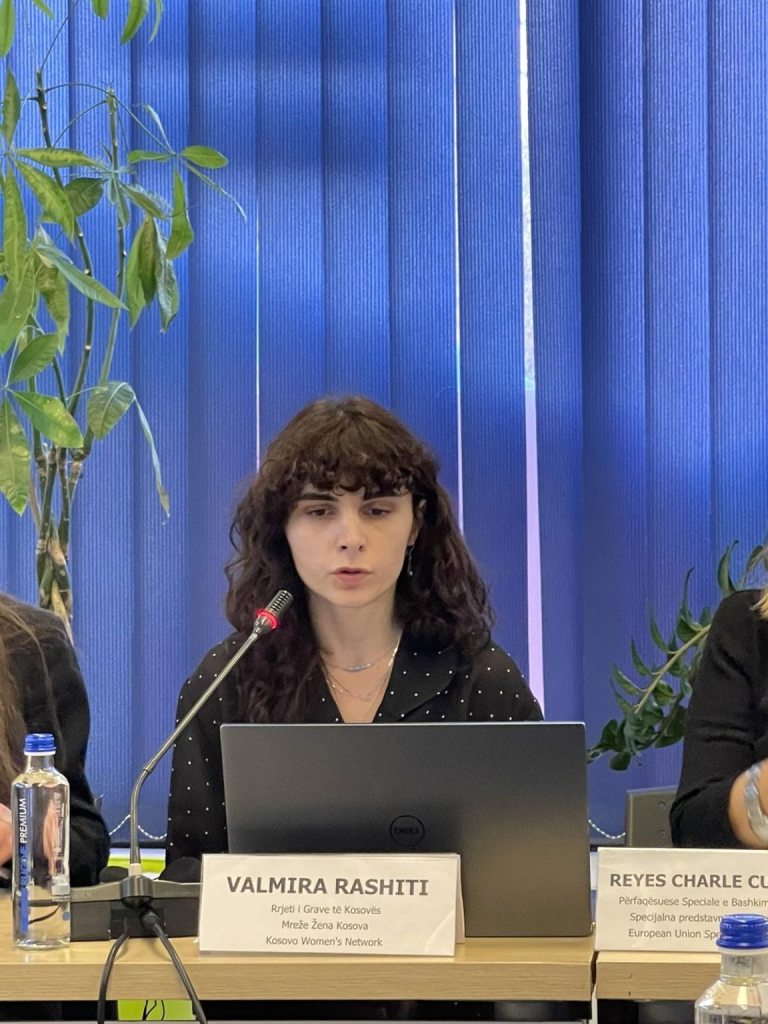
“We greatly appreciate the exercise of the accountability regarding the inclusion of gender in the 2023 EC Kosovo Report,” the EU Office in Kosovo commented regarding the publication of this report.
“Each year, we see improvement in addressing the needs of women and girls, and we also recognize that efforts must be expanded in several other areas. The EU will continue to be committed to the advancement of gender equality in all policies in close cooperation with all interested parties.”
Valmira Rashiti, co-author of this report and Officer for the Integration of the Gender Perspective at KWN, presented some of the following findings during the launch:
- Raising the inclusion of the gender perspective in the report of the EC on Kosovo for the year 2022 and the lack of closer consultation of the government and the EU with WCSO’s on their priorities were highlighted;
- The lack of regular and structured dialogue between the EU office in Kosovo and WCSO’s to discuss their perspectives on political developments was noted;
- Additionally, the moderate level of involvement of WCSO’s, especially those from the local level, in the process of political dialogue and the structures of the Stabilization Association Agreement (SAA) was highlighted, with emphasis within the Sub-Committees and Committees of the SAA;
- The moderate level of gender inclusion in SAA meetings and the potential to enhance governmental transparency by publishing agendas and conclusions of SAA meetings between the government and the EU;
- To reach a diverse audience, including women and men, as well as civil society organizations; and
- The low level of implementation of the United Nations Security Council Resolution 1325 on Women, Security, and Peace by both the EU and the government of Kosovo.
From an institutional perspective, Artan Çollaku from the Office of Coordination of Stabilization and Association Process, Office of the Prime Minister, stated:

“Based on the experience thus far in coordinating planning and monitoring for EU integration since the entry into force of the SAA, we can observe an improvement in cooperation with civil society for the integration of the gender perspective in the planning framework for this process.”
The public administration has better understood the importance and relevance of the gender perspective for this process, and some improvements have been made in the implementation of certain priority chapters of the membership negotiations, such as Chapter 23 [on Justice and Fundamental Freedoms] or Chapter 20 [on Entrepreneurship and Industrial Policies].”
KWN agrees with this and reiterates that Kosovo is considered a positive example in the region.
However, Luljeta Demolli from the Kosovo Center for Gender Studies and Vetone Veliu from the Mitrovica Women’s Association for Human Rights emphasized the urgent need for the inclusion of more women in political dialogue structures, with a focus on women at the local level. This includes incorporating their priorities and challenges into political agendas.
The key recommendations of this report are as follows:
For the government of Kosovo:
- To ensure consistency in the collection and regular publication of gender-separated data, in accordance with the Law on Gender Equality, to inform reforms within the EU membership process;
- Rethink the necessary organization and consultation with WSCOs and their inclusion in European integration structures;
- Prioritize receiving and consulting their contributions regarding the meetings of the SAA structures;
- Also, examine the possibility of publishing the agendas and conclusions from the meetings of the SAA structures;
- Consider involving WSCO’s experts in consultations and working groups from the early stages of drafting policies and sectoral documents (before formal public consultations) to ensure that attention to gender equality is integrated from the outset;
- This helps avoid any structural or systemic obstacles and ensures sufficient attention to gender equality in public policies;
- Aim to improve the capacities of gender equality officials, engaging them in policy-making processes through working groups, with the goal of integrating the gender perspective into policies emerging from the EU membership process.
For the European Union in Kosovo:
- To continue organizing necessary consultations with various WSCO’s entities and integrate their contributions into the European Commission’s Report on Kosovo;
- Emphasize cooperation and the development of strategies with OSHCG networks to increase consultations with diverse women and men, including those at the local level, persons with disabilities, and individuals from different ethnicities;
- To further enhance attention to gender equality in the political dialogue with the Government of Kosovo, including the Agency for Gender Equality and gender equality mechanisms within the dialogue structures;
- To hold regular meetings between the Head of the EU Office in Kosovo/EU Special Representative and various WCSOs related to issues of gender equality and women’s rights, as well as those related to political developments in general, in compliance with EU commitments within Resolution 1325 and Gender Action Plan III;
- Take immediate steps to ensure the improved and regular involvement of various WSCO’s in the Prishtina-Belgrade Dialogue, including regular consultations, according to Resolution 1325;
- To ensure the implementation and monitoring of the Gender Action Plan at the country level, in close consultation with WSCO’s;
In addition to the aforementioned individuals, other participants in the panel was Monika Gajowy from the Section for European Integration, Policy, Information, and Press at the Office of the European Union in Kosovo, and Reyes Charle Cuellar, Adviser on Gender Issues at the Special Representative of the European Union.
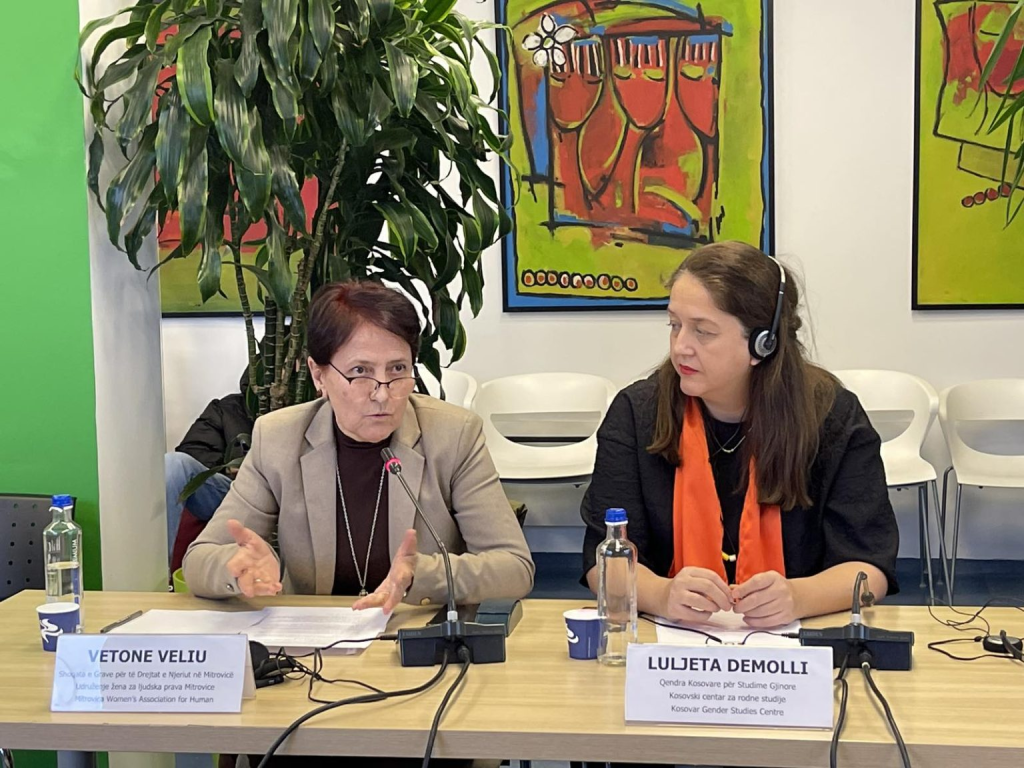
Meanwhile, Nicole Farnsworth, co-author and Director of the Research Program, has moderated the panel.
KWN has compiled this policy brief using the methodology developed by partner organizations of the Coalition for the Advancement of Gender Equality through the EU Accession Process (EQUAPRO) as part of our joint initiative “Strengthening Gender Equality through the EU Accession Process,” co-financed by the European Commission and Sweden. You can watch the launching event here and the the full report here.





